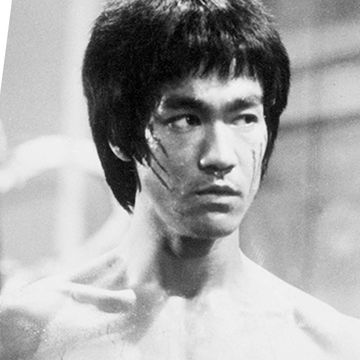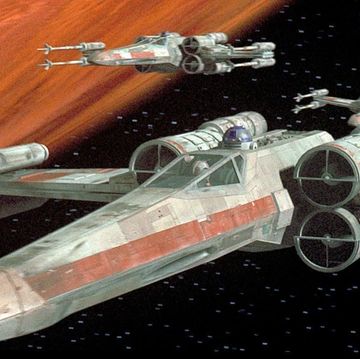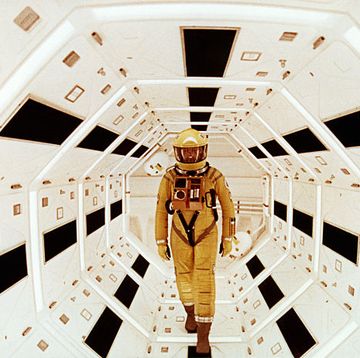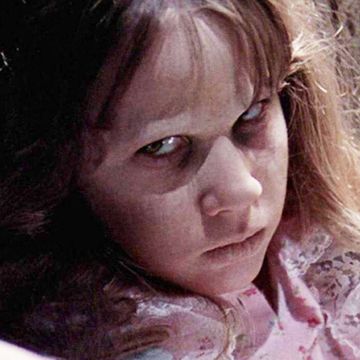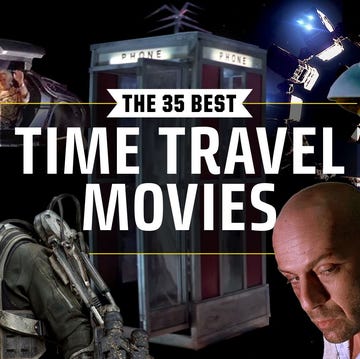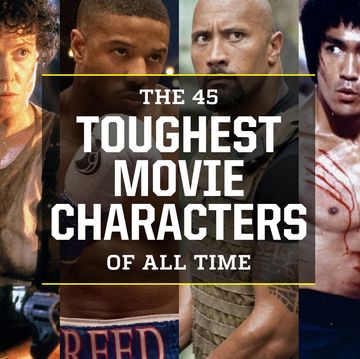A guide to understanding the latest hero Marvel has introduced to us on the screen: Paul Bettany's mysterious Vision. Past and potential future, this is everything you need to know about the Avengers' weird new robot. Spoilers for 40 years of Avengers comics and mild spoilers for Avengers: Age of Ultron follow.
Who the hell is Vision and what's with the name "Vision" anyway?
Well, the idiocy of the name Vision is indefensible. But, I mean, would you want to have a drink with dudes who called themselves "Captain America" or "Superman"? In both the movie and the comics, one of the other heroes is shown a "vision" and the synthezoid uses that word because it sounds cool. 1960s comic books got down like that.
So he's an android. So's the Terminator. Why is Vision cool?
That's "synthezoid" to you, sparky. (Even if they do everything but call him that in the movie.) And basically, Vision's powers in the comics include: density control (meaning he can fly, "phase" through solid objects, or put the power of a semi truck behind a punch if he wants to); shapeshift and manipulate a wide range of technology to his needs; regenerate and repair himself; superhuman agility, intelligence, strength, and speed; and project solar radiation out of that shining crystal on his forehead.
Sounds like a lot for Paul Bettany to master.
Better known to the world as Geoffrey Chaucer. He's got this.
But A Knight's Tale was a funny, goofy movie. And he's hysterical in it. They picked that guy to play a robot?
Well, he was also Jarvis in the Iron Man films, which provides a logical narrative through-line to his casting. Instead of Hank Pym (who we'll see in Ant-Man!) creating Ultron like in the original comics, Marvel decided to pin that colossal error in judgment on Tony Stark. Robert Downey Jr. will royally cock up the creation of a Siri-like artificial intelligence that then takes control of his Iron Man mojo, and an even larger hell than the nuclear finale of the first movie breaks loose.
To make the film work, Paul Bettany's Vision will have to play the antithesis to James Spader's Ultron. In early comics, the shtick was that, to all these living, breathing human teammates, he sounded remarkably human despite his metallic voice and face. He's entirely human, except for the fact that all his parts are made of synthetic material (synthezoid, get it?).
Hasn't that kind of been—you know—done already?
Well, yes. And yes. And yes. But Vision's best-known character-defining moment was probably co-creator John Buscema's full page of him crying. It's really tragic in context, and was published in 1968—the same year as Philip K. Dick's Do Androids Dream of Electric Sheep?, which Blade Runner was based on.
You better not be knocking "Tears in the Rain," because I swear to God...
No! Absolutely not. But it's a worthwhile parallel to draw as these movies tell bigger and more ambitious stories that will have to get more character-driven. Vision's humanity is who he is—otherwise he's not compelling. It's the same reason Marvel cast one of the most spine-tingling voices available to play Ultron.
James Spader is pretty terrifying as Ultron.
He is what will happen in about five years when Siri goes to the Dark Side. But if Ultron is Vader, Vision is Luke Skywalker.
Wait, what?
He's arguably the most powerfully godlike of the Avengers with the exception of Thor. In the comics, he gets created by Ultron and redeems himself by betraying Ultron after seeing the pain he has caused the Avengers. Then he falls in love with Scarlet Witch, because in case you didn't know this, Marvel's comics were just soap operas disguised in tights and "Pow" bursts. You'll see how he helps them in the movie, he's a badass.
Well, that's lame. Now we know why they put another girl on the team.
Man-heaviness aside, Age of Ultron doesn't get into that, but I wouldn't mind if the films eventually did, because that's what Vision ultimately cries over.
Well, damn, is Vision any fun? Iron Man's fun. The Hulk's fun. The first movie was packed with Joss Whedon jokes.
Whedon's dialogue is excellent. It can also lean toward the insufferable.
Blasphemer!
Kidding (kinda). But he plays the straight man here, and for much of the movie plays a wonderfully lost fish out of water.
I mean, Paul Bettany.
Exactly.
Why did Paul Bettany consent to wearing a shining yellow stone on his forehead for a whole movie?
This may be the most narratively exciting element of Vision's introduction. If you've seen the other movies, you may have deduced it's not the only stone of its kind. And you may know a thing or two about Thanos, the big purple brute seen previously in the first Avengers post-credit stinger and Guardians of the Galaxy, but the explanation for how they tie into each other is a deeply involved (and potentially spoilerific) comic-book storyline involving the rest of the magical items introduced in the Marvel Cinematic Universe. What you need to know is: Because he's powered by that stone in more ways than one, if Vision loses it, there's a chance we lose the hero we know. You already know the other robot who went bad, and you know Thanos wants these stones for a greater purpose, so...could Avengers: Infinity War be absolutely bonkers if these things were to happen in that film? I hope so.
What you're saying is basically that this android could be Terminator plus Blade Runner plus Star Wars plus Lord of the Rings all at the same time.
Bingo.
And he likes Scarlet Witch.
Maybe.
Will our Vision dream of electric Olsens?
That's an awful joke, but as long as he's programmed against superhero twincest (which—remarkably—actually happened in the comics), everything will be OK.



